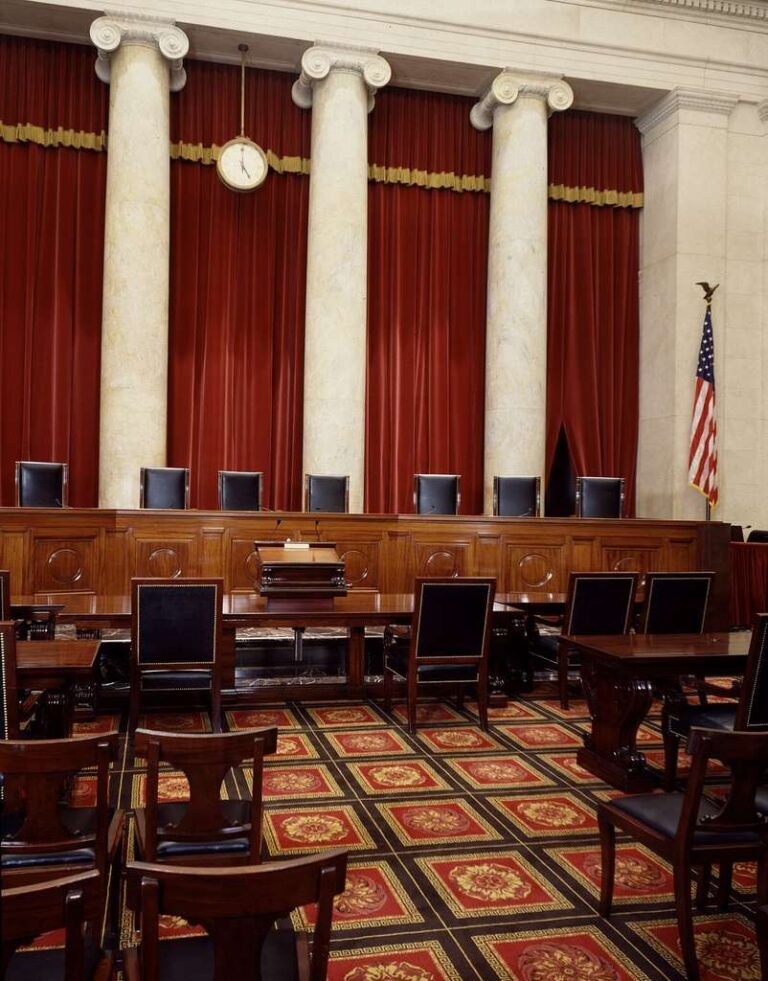
Jason Vazquez is a staff attorney at the International Brotherhood of Teamsters. He graduated from Harvard Law School in 2023. His writing on this blog reflects his personal views and should not be attributed to the Teamsters.
While is difficult to predict what a second Trump administration may presage for the broader political economy, at least one thing is virtually certain: in the near future — perhaps sooner than anticipated — Donald Trump’s appointees will recapture control of the National Labor Relations Board. There is little doubt the corporate attorneys Trump is all but guaranteed to nominate will swiftly move to dismantle the Biden Board’s prounion legacy and, in the traditional GOP fashion, recalibrate national labor policy in management’s favor. As corporate interests begin to signal a deeper appetite for foundational assaults on the Board’s regulatory capacity, however, the specter that the incoming administration may pursue more novel and radical antiregulatory measures looms. These may include, as some analysts have previewed, refusing to appoint members to the NLRB. While such a strategy would cripple, if not foreclose, labor law enforcement, and be extraordinarily difficult to challenge in court, it is not guaranteed it would ultimately redound to management’s advantage.
As an initial matter, litigating a president’s failure to name NLRB replacements would likely prove all but impossible. The NRLA empowers the President to make appointments to the Board but nowhere compels him to do so. Indeed, President Biden has somewhat controversially left a seat conventionally occupied by a Republican member vacant for nearly two years. Nor would the Administrative Procedure Act, the transsubstantive statute governing federal agencies’ adjudicatory and regulatory activities, offer relief. Though the APA authorizes judicial review of an executive branch “failure to act,” in practice the availability of such a challenge is largely illusory. While cautioning that an agency may not completely “abdicat[e] its statutory responsibilities,” the Supreme Court has made clear the APA does not empower the judiciary to “enter general orders compelling compliance with broad statutory mandates.” (And, again, the President is not statutorily mandated to nominate Board members.) Even more decisively, the Court has categorically announced that the APA does not contemplate judicial review of presidential decisionmaking.
Of course, the president’s conduct remains subject to constitutional constraints even in the absence of statutory remedies. Yet no viable avenue exists to contest a failure to nominate on constitutional grounds. A challenge under the Constitution’s Appointment Clause may in theory be available but, even tabling thorny standing questions, the Clause confers virtually unfettered discretion on the president to nominate executive officers. And while disabling an agency from carrying out its statutory duty appears inconsistent with the President’s constitutional obligation to faithfully execute the laws, not all constitutional transgressions are necessarily justiciable or redressable. The Supreme Court has declared that vindicating “the public interest in Government observance of the Constitution and laws” is not an adequate basis for litigation, and Congress has declined to establish a statutory cause of action, explicitly or implicitly, to enforce the Take Care Clause.
In short, the law is unlikely to block Trump from disabling the NLRB if he were inclined to do so. Such a move would all but preclude enforcement of federal labor law. The Supreme Court has held that absent a lawfully appointed quorum — at least three members under Sec. 3(b) — the NLRB may not exercise its powers. And since Congress vested the Board with exclusive jurisdiction to administer the NLRA, courts are largely deprived of authority to adjudicate violations of the Act. Thus, if the NLRB were disabled, no legal mechanism would exist to litigate unfair labor practices. The upshot is that a motivated president could effectively suspend the rights, protections, and obligations the NLRA establishes without any legislative action — or even so much as a notice-and-comment proceeding.
To be sure, there are strands in the caselaw indicating that courts may be disposed to assert jurisdiction in the event the Board were incapacitated. The Supreme Court has remarked that “[i]n the absence of any available administrative remedy,” statutory rights which would otherwise be ”sacrificed or obliterated” are presumptively of judicial cognizance. This line of cases rests on the presumption that where Congress fails to specify a mode of enforcement, it “intended the statutory provisions governing the general jurisdiction of [federal] courts to control.” Congressional intent is the linchpin — it is “for Congress to determine how the rights which it creates shall be enforced.” Here, Congress plainly intended to establish an exclusive remedial forum for labor law violations, which would temporarily unavailable given the Board’s incapacitation. In other words, in enacting the NLRA, as the Supreme Court has concluded, “Congress intended for the Board,” not the courts, “to exercise exclusive jurisdiction in this area.”
Even so, given the uncertainty, it is not clear that Trump — or the corporate interests shaping his agenda — would consider this strategy a prudent one. At first blush, eliminating the Board would appear to advance management’s interests in obvious ways. After all, the NLRA safeguards basic labor organizing rights; deactivating it would unleash employers to deploy all manner of unlawful unionbusting tactics. Unions, on the other hand, would remain hamstrung by the Act’s most oppressive stricture, as § 303 authorizes private actions against secondary activity.
But deeper reflection suggests the corporate sector would have little incentive to ignite this firestorm. Given working people’s overwhelming support for organized labor, elevating the political salience of unions with such a cynically antilabor move may not prove a sound strategy. After all, employers have managed to exploit the existing labor law regime to such a remarkable extent that a world in which the NLRA is effectively nullified may not differ dramatically from the one we inhabit. The contemporary fissured economy has rendered Sec. 7’s essential protections all but obsolete for sweeping swaths of the workforce, and the Board’s remedial arsenal is so impotent that even covered employers systematically run afoul of the law. Moreover, disabling the NLRB would merely suspend — not extinguish — employers’ liability for unfair labor practices, as a restored quorum could adjudicate charges filed with the regional offices during the Board’s period of incapacity. Additionally, and importantly, it is unsettled whether in this imagined scenario the NLRA’s comprehensive preemption regime would remain intact, which could liberate progressive states to enforce more robust labor relations regimes.
All told, management lawyers may view it as more advantageous to steadily unwind the Biden Board’s prounion initiatives than to provocatively deactivate the agency’s authority. Indeed, Trump and his corporate allies have not signaled any discernible interest in disabling the NLRB. Still, the strategy remains within the realm of possibility. Many of Trump’s closest advisers are profoundly committed to radically dismantling regulatory power in general and viscerally hostile to the Board in particular. And the move would not be entirely unprecedented, as Trump took similar action with respect to the Merit Services Protection Board during his first term. Ultimately, incapacitating the NLRB would merely accelerate the trend toward “structural deregulation” which scholars have identified with alarm in recent years, a strategy Trump embraced more aggressively than any of his predecessors. Perhaps, then, it is a reality for which the labor movement should not find itself wholly unprepared.










Daily News & Commentary
Start your day with our roundup of the latest labor developments. See all
February 13
Sex workers in Nevada fight to become the nation’s first to unionize; industry groups push NLRB to establish a more business-friendly test for independent contractor status; and UFCW launches an anti-AI price setting in grocery store campaign.
February 12
Teamsters sue UPS over buyout program; flight attendants and pilots call for leadership change at American Airlines; and Argentina considers major labor reforms despite forceful opposition.
February 11
Hollywood begins negotiations for a new labor agreement with writers and actors; the EEOC launches an investigation into Nike’s DEI programs and potential discrimination against white workers; and Mayor Mamdani circulates a memo regarding the city’s Economic Development Corporation.
February 10
San Francisco teachers walk out; NLRB reverses course on SpaceX; NYC nurses secure tentative agreements.
February 9
FTC argues DEI is anticompetitive collusion, Supreme Court may decide scope of exception to forced arbitration, NJ pauses ABC test rule.
February 8
The Second Circuit rejects a constitutional challenge to the NLRB, pharmacy and lab technicians join a California healthcare strike, and the EEOC defends a single better-paid worker standard in Equal Pay Act suits.